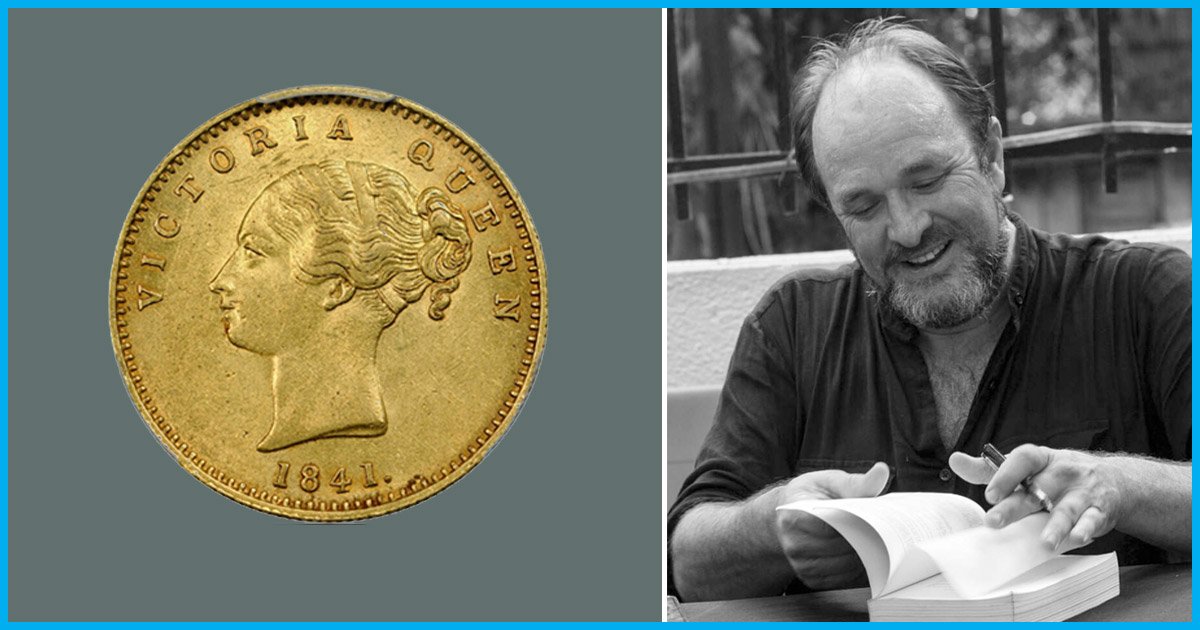Historian William Dalrymple Explains How Today's 'Corporate' World Reminds Him of the East India Company Days
4 May 2017 7:30 AM GMT
Editor : Kiran Kumbhar Kumbhar
Kiran Kumbhar is a medical doctor from India and currently a PhD student at Harvard University, Boston. His research focuses on politics and the history of medicine in post-Independence India.
Around two years ago, on March 4, 2015, the Guardian published a long essay by historian William Dalrymple, titled ‘The East India Company – The Original Corporate Raiders’. Dalrymple talked about the excesses of the Company during colonial times and drew hard-hitting parallels between the East India Company and the giant and powerful private companies of today. Here we provide a short summary of his arguments.
It was a private company, and not a nation-state, that conquered the prosperous civilization of India:
The August 1765 grant of Diwani rights (Treaty of Allahabad) by the Mughal emperor Shah Alam to Robert Clive of the East India Company (henceforth ‘EIC’), is one of the most significant events in Indian as well as world history. The treaty converted ordinary EIC traders into powerful administrators by granting them the right to collect taxes in Bengal, Bihar and Orissa. Dalrymple calls this ‘an act of involuntary privatization’: “The collecting of Mughal taxes was henceforth subcontracted to a powerful multinational corporation”. This MNC even had its own army.
Dalrymple contends that it is misleading when we say ‘the British conquered India’. “At the end of the 18th century [India was conquered by] a dangerously unregulated private company headquartered in one small office in London.”

Conflict of Interest and Crony Capitalism:
Dalrymple describes how it was state/governmental support, especially through MPs in Britain who had a financial stake in the EIC, which made the private company so powerful. The British Parliament overlooked the Company officials’ transgressions, and also made protection of the Company a part of British foreign policy. In the official versions of British presence in India, the corporate loot wreaked on the country was conveniently glossed over. It is possible that if the British government had taken seriously the hazards of conflict of interest, there perhaps would never have been a British Raj in India.
Soon after the Allahabad treaty, in the 1770s, the EIC was left with debts of £1.5m and a bill of £1m unpaid tax owed to the British Crown. However, quite like with Indian corporates today, the EIC’s bad loans too were ‘written off’. Dalrymple calls this 1773 event as “the world’s first aggressive multinational corporation [being] saved by history’s first mega-bailout.”

Overt and covert support from politicians and MPs:
In his most crucial insight for our times, Dalrymple argues that many of modern India’s rich industrialists have amassed wealth in ways similar to Robert Clive’s, the EIC’s ruthless official who had won the Battle of Plassey for the Company. Clive and other corrupt Company officials used their wealth to buy both MPs and parliamentary seats. In turn, parliament backed the Company with state power: the ships and soldiers that were needed when the Company had to wage war. Such arbitrary state support reminds one of the recent tax benefits offered to Baba Ramdev’s Patanjali Yogpeeth, and of the escape of Warren Anderson after the Bhopal Gas Disaster of 1984. Industrialist Mukesh Ambani, Dalrymple says, has “unprecedented political access and power” today.
Dalrymple worries that of donations to the political parties, around 90% came from unlisted corporate sources, given in return for “who knows what undeclared promises of access and favours”.
A few sane voices worth taking seriously
There were a few British parliamentarians who did speak out against the EIC’s corruption and its influence over other politicians, like Edmund Burke. He was extremely vocal about the ills of corporate corruption. Dalrymple says that Burke “correctly identified what remains today one of the great anxieties of modern liberal democracies: the ability of a ruthless corporation corruptly to buy a legislature”.
Burke’s concerns were repeated recently by former RBI Governor Raghuram Rajan, in a warning he had for the Indian nation: “Even as our democracy and our economy have become more vibrant, an important issue in the recent election was whether we had substituted the crony socialism of the past with crony capitalism, where the rich and the influential are alleged to have received land, natural resources and spectrum in return for payoffs to venal politicians. By killing transparency and competition, crony capitalism is harmful to free enterprise and economic growth. And by substituting special interests for the public interest, it is harmful to democratic expression.”
 All section
All section














